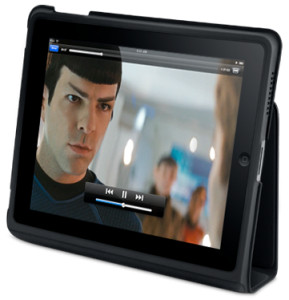Strategy Analytics: Is Tablet TV a new medium?
August 22, 2012
 Writing in the Digital Home Observatory blog, Strategy Analytics Vice President and Principal Analyst David Mercer suggests that behaviour and usage patterns for Tablet TV consumption could present opportunities for content providers to drive revenues associated specifically with tablet viewing.
Writing in the Digital Home Observatory blog, Strategy Analytics Vice President and Principal Analyst David Mercer suggests that behaviour and usage patterns for Tablet TV consumption could present opportunities for content providers to drive revenues associated specifically with tablet viewing.
“The television industry is still getting to grips with the implications of multiscreen,” suggests Mercer. “Nearly a year ago our research (Multi-Screen User Behaviors in the Home) pointed out that ‘multiscreen’ is not a simple concept: different devices attract different behaviour patterns, and content players need to take this into consideration when developing experiences specifically tailored to multiscreen viewers.”
Mercer advises that Strategy Analytics latest research goes deeper into the multiscreen TV phenomenon which is sweeping through digital living rooms: Tablet TV. “We have known since soon after the iPad’s launch that watching video was one of the main applications of the device, and that most of this activity was taking place at home. Service providers such as pay-TV companies and broadcasters have recognised this consumer demand by making some of the programming available through apps and TV Everywhere services, so the tablet is clearly becoming a recognised alternative to the main TV set,” he notes.
Strategy Analytics’ Digital Home Observatory has now explored how the behaviour of Tablet TV viewers differs from those watching the big screen. “In our recent report, Users More Engaged with Video Consumption on Tablet than on TV, we observed that tablet TV viewers were in the beta state, showing alertness and consciousness regarding the content they were watching. This contrasted strongly with the alpha state of traditional (big screen) TV viewers, whose mode was closer to deep relaxation,” advises Mercer.
“The heightened levels of engagement of Tablet TV viewers should present opportunities for content providers to drive revenues associated specifically with tablet viewing, based on the fact that the value of the viewer’s engagement could be significantly higher than traditional TV” he suggests. “This would assume that advertising and marketing communications can be created which do not detract unduly from the core content, and also that technology providers can support them with the right solutions.”
“It is too early to say for sure that Tablet TV is going to evolve on a different path to big screen TV, but it seems quite clear that behaviour and usage are already quite distinct. It will be very interesting to watch if and how content developers respond to these findings,” he concludes.
